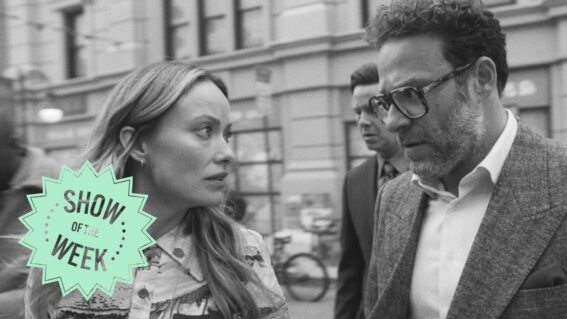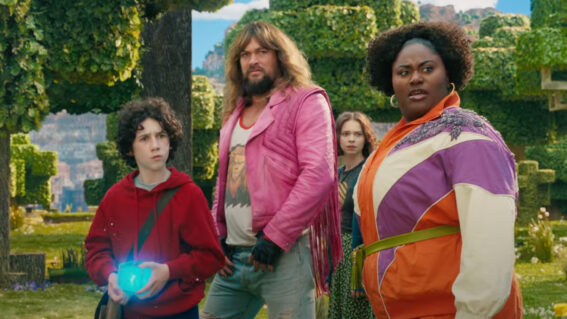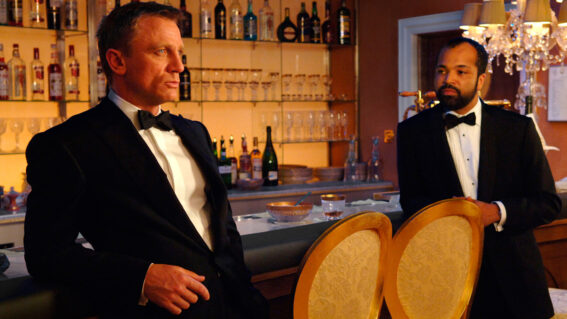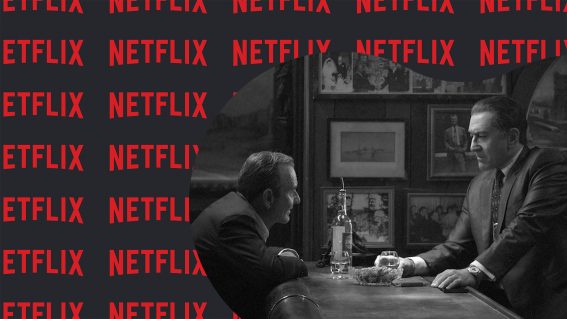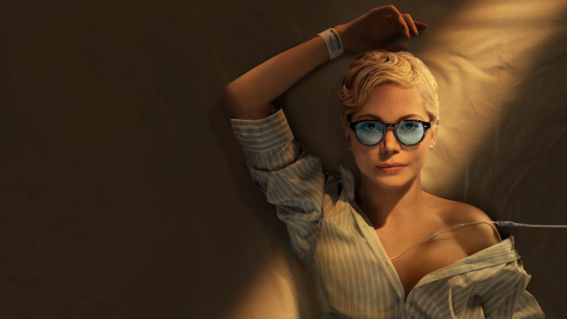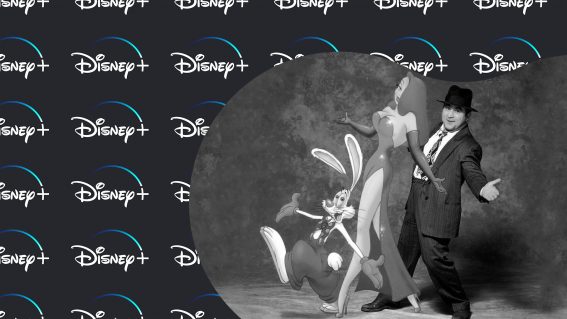David Farrier talks Mister Organ and why he never wants to think about it ever again
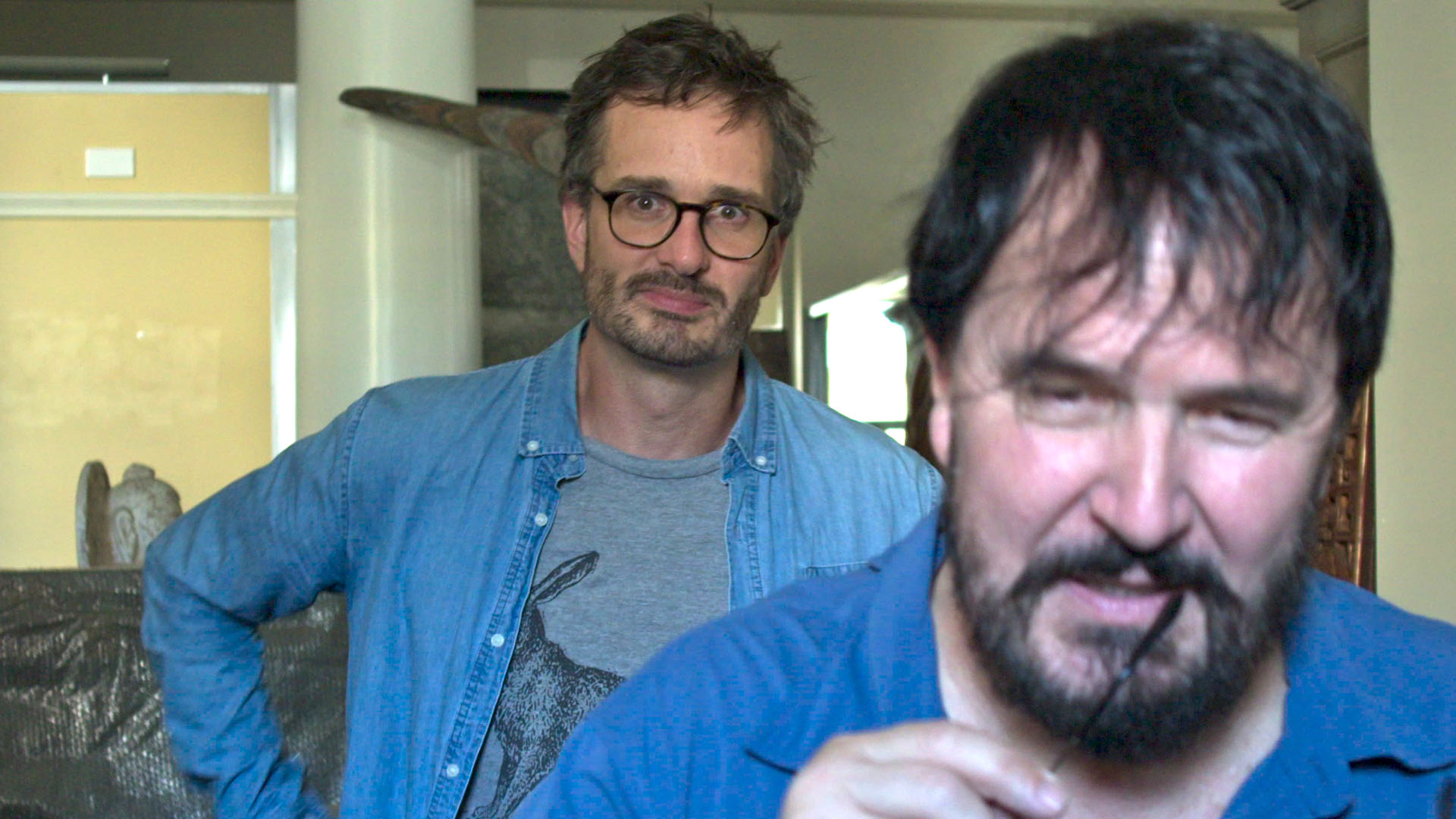
An investigation into who’s behind a bizarre spate of car clamping outside an Auckland antique shop leads David Farrier on a strange and troubling journey in his new doco Mister Organ. Steve Newall finds out more about the film (deeply unsettling and exposing a hurricane of emotional damage according to our review on Flicks) and the toll it took on Farrier.
“If I could not have made this, I would not have fucking made it.”
That’s strange to hear from any filmmaker promoting an upcoming cinema release. It’s even more unexpected from the seemingly unflappable David Farrier, who’s followed all manner of weird stories into the oddest of places or down the most unpredictable of rabbit holes. Farrier’s previous doco Tickled is hardly the work of someone with a thin skin, nor is his Netflix series Dark Tourist—so why this reaction to his own brilliantly titled new doco Mister Organ?
Like Tickled, Mister Organ is showing surprising international reach. Despite its humble-seeming origins (stories for The Spinoff about over-the-top clamping policies in a Ponsonby antique shop’s car park), the film recently had its world premiere at Fantastic Fest in Austin, Texas.
And, as we catch up to chat, the film has just screened at Beyond Fest in Los Angeles, where Mister Organ’s impressed Beyond Fest audience in LA included Stephen Fry who tweeted the following from his (now-deleted) Twitter account:
“I’ve just emerged blinking and trembling from MISTER ORGAN and couldn’t recommend a film more highly. If you want proof that fact is stranger than fiction – wow! Congratulations @davidfarrier – another fabulous achievement.”
“Box me up in the coffin and lower me into the ground, I’m done,” was Farrier’s response, clearly thrilled. Even if the timing of the Beyond Fest screening might’ve left something to be desired…
“Part of me was devastated,” Farrier tells me, “because the new Hellraiser was playing in another cinema and Clive Barker had turned up to present that session. So I was excited to be there, but also wishing I was in the other theatre as well.”
That’s funny timing, isn’t it? Two films about someone who will tear your soul apart?
“It is, really!” Farrier laughs.
View this post on Instagram
It’s good to have a chuckle about Mister Organ when we can. There’s a lot to laugh at in the film, but there’s also plenty about it that’s not at all funny, as we see Farrier getting worn down and the doco’s revelations become increasingly impactful. Comparing the title character to energy vampire Colin Robinson from What We Do In The Shadows, Farrier says “I think that’s why people so far have responded to the film, because they’ve all met versions of him. I think he’s just a very extreme version of that.”
Back in 2016, the seriousness wasn’t necessarily apparent. The Ponsonby car clamping investigation led Farrier to one Michael Organ, and what he discovered may as well have been labeled David Farrier Catnip.
As his Mister Organ voiceover explains: “This is exactly my kind of weird mess”. He lists for me the ‘quirky’ elements that got his attention—late night clamping, fees of up to $1,000, strange characters, drama, animosity, someone calling themselves a ‘Prince’.
“It is a weird mess,” Farrier reiterates. “There’s a mystery, because you don’t know who’s telling the truth. There’s misinformation flying around, and that’s something I want to solve. So that’s a weird mess that I like—a couple of strange, unique characters, doing some strange, unique things, with some tenuous links between those things, and I kind of want to solve how that all fits together.”
Farrier’s work reveals more than quirkiness amid these strange, weird messes. That’s been seen increasingly over his career, even in absurd pieces like his infamous Sauna Sessions interview with Colin Craig. He’s drawn to abuses of power, people he sees bullying other people. Sometimes he makes them sweat.
The bullying is generally seen from people that are in positions of power over somebody else, he tells me: it was the case with John Cameron at Arise Church (the megachurch whose abuses Farrier reported on this year via his subscription newsletter Webworm), it was the case with Tickled’s David D’Amato. And with Mister Organ, “Michael is someone who is really good at picking the victim, someone who isn’t a victim, but he makes them a victim,” Farrier says. “And he’s very good at doing that.”
The picture Farrier paints of Michael Organ is of someone targeting a very specific, vulnerable type of person, whether they’re vulnerable because of their sexuality, or because they are alone or lonely. “He’s not just picking people willy-nilly,” Farrier puts it. As he talked to the many badly-affected people we see in the film (and many more who wouldn’t appear out of fear), Farrier believed he wasn’t particularly vulnerable himself. “I’m a very privileged, lucky person,” he says. “I feel a certain level of confidence, and I feel okay with myself.”
I suggest to Farrier that as well as confidence, his openness presented a challenge to Michael Organ’s modus operandi, particularly in leveraging people’s sexuality. “He couldn’t make me a victim in the ways he makes a lot of other people the victim”, agrees Farrier. “Because I’m very open about everything about me, whether I’m bisexual, about whether I love cats, whether I’m obsessed with a certain thing, everything’s sort of out there.” Farrier felt pretty invincible. At first.
But as the four years of making the film went by, Farrier says his sense of invincibility became eroded, ending up in what he describes as a very weird space. “He makes victims out of people,” he says, quoting someone in the film. “He destabilises people. And he did that with me, I think, in a different way to others. I certainly had an advantage going into this, you know, I’m still standing. I’m okay.” But it was draining, he admits, turning him into “a little shell”.
“Now I get why you were just so wound up and kind of depressed,” a friend from NZ told him after attending one of the US screenings. “Yeah, he sort of got it,” Farrier says. “And I couldn’t really explain at the time why I was like that, but hopefully it’s shown in the film.”
View this post on Instagram
“I feel like I fucked up pitching the film in the first place,” we see Farrier admit onscreen part-way through Mister Organ. It’s a moment of extreme vulnerability where his good-natured stubbornness shatters during a phone call, and any perverse entertainment we’ve experienced from Farrier’s predicament in struggling to crack the story falls away.
I ask him what it’s like to watch that scene play out. “It certainly takes me back there again,” Farrier says. “I mean, that was a point in real-time, where I was realising I’d made a mistake. When I said earlier that I wish I’d never made this, that’s probably a moment that shows that.”
“Because we get a limited number of years on earth, you know, I’ll be dead when I’m 80, or 90, or 50, or whatever, a limited amount of time. I’d rather live a life where I’d never made this and had never had to meet this person, than to have made the film and be where I am now. Hands down. I fucking hated the whole experience—it was really hard, and I get agitated watching it because it makes me feel all those things.”
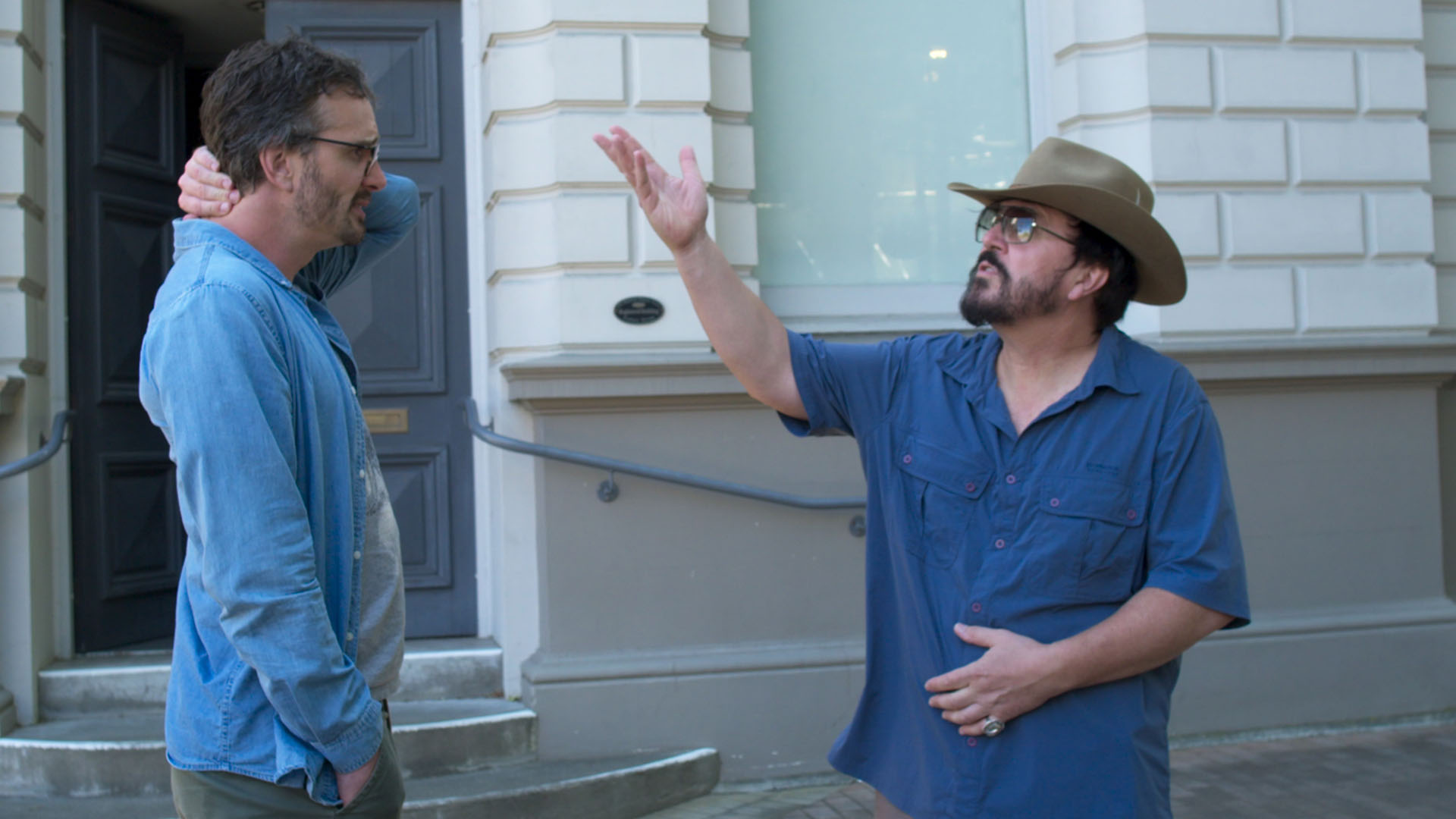
It’s hard to explain why that is, Farrier tells me. He thought he had some idea of what was going on when he started filming, after having written about it for a couple of years. “In doing that, I sort of knew where the story was headed,” Farrier says. “So I didn’t go in without a bit of a plan. But I just didn’t know it would be this hard, and that the way the film unfolded would take so long and be so challenging.”
It just wasn’t worth it, he tells me. Things he thought would be exciting were boring. Things that he thought would lead somewhere led nowhere. “You think you’ll be getting to a certain answer, and it’s never there, because you’re in Michael’s world,” he says. “It just takes a toll. And in that scene we’re talking about, it’s that I realised I fucked up and it’s a bad feeling. I didn’t see a way through the scenario. People were relying on me, they told me their stories—I knew I wanted to get them out there, but I just couldn’t see a way where I could, so I felt insecure and panicked and worried, and I just wanted to get the fuck out of there.”
Having assured all those people he’d tell their story, Farrier felt trapped between the weight of that responsibility and a sense of hopelessness about the film’s progress. As he puts it: “I saw that all slipping away with no foreseeable way through because I was stuck with this fuckwit and so yeah, it all sort of dawned on me and the camera happened to be rolling. And it all kind of hit.”
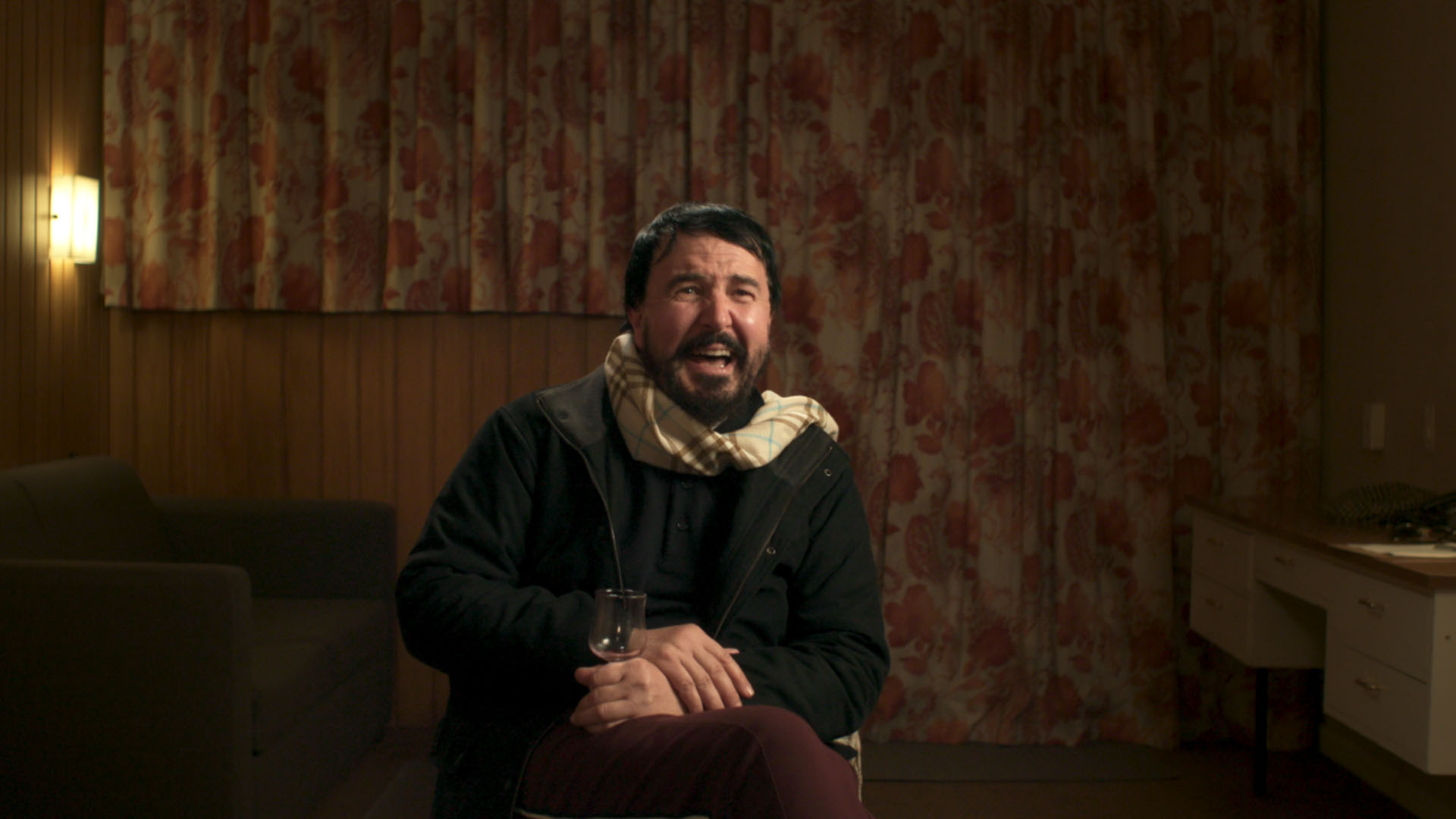
With too many years of experience for comfort, I feel Farrier is well-placed to offer an opinion on “what makes a Michael Organ?”. But when he answers my question, for the first time in our interview, I feel him walking a tightrope. A tightrope suspended over a pit of threats, litigation, and vindictiveness, with Farrier pausing frequently to check his footing.
“Ah, I think, I think like all of us, nature and nurture, I think,” comes his careful response. “I also think we make a number of decisions about how we’re going to live our lives and how we’re going to treat other people. And I think no matter what your nature or nurture is, there are choices along the way. And I think some people make different choices than others. I’d love to be able to say more, but I… I can’t.”
Farrier’s cautious answer lines up with something I felt multiple times during Mister Organ—that making the film is a pretty big stick to be poking someone like Michael with.
“This needed to be poked,” Farrier says emphatically. “He’s reflective of the prevailing attitude in the world at the moment—that Donald Trump probably had a big part to do with—where you just kind of play by your own rules, and you invent your own version of the truth. And you just run with it. I come over to you, Steve, and steal your jacket. And I’m just like, ‘That’s my jacket. It’s not yours.’ And that’s my truth, and that works for me—now I have your jacket, and I’m probably going to be fine. That’s the way we kind of live now. And Michael is the perfect example of that. He is doing that, he’s been doing that for decades.”
“Things can’t get worse,” Farrier notes. “He’s created victims, and there’ll just be more. And I think there’s a slight chance that this will stop that cycle.” Farrier is aware there are still some risks with the film, though. “I’ll take precautions along the way with him,” he tells me. “Yeah, I’ll be careful. Me and the team are being really careful. Because Michael, as the film demonstrates, is always ahead of the game. And so we’re just trying to be somewhat, not ahead of, but a bit closer to, his moves.”
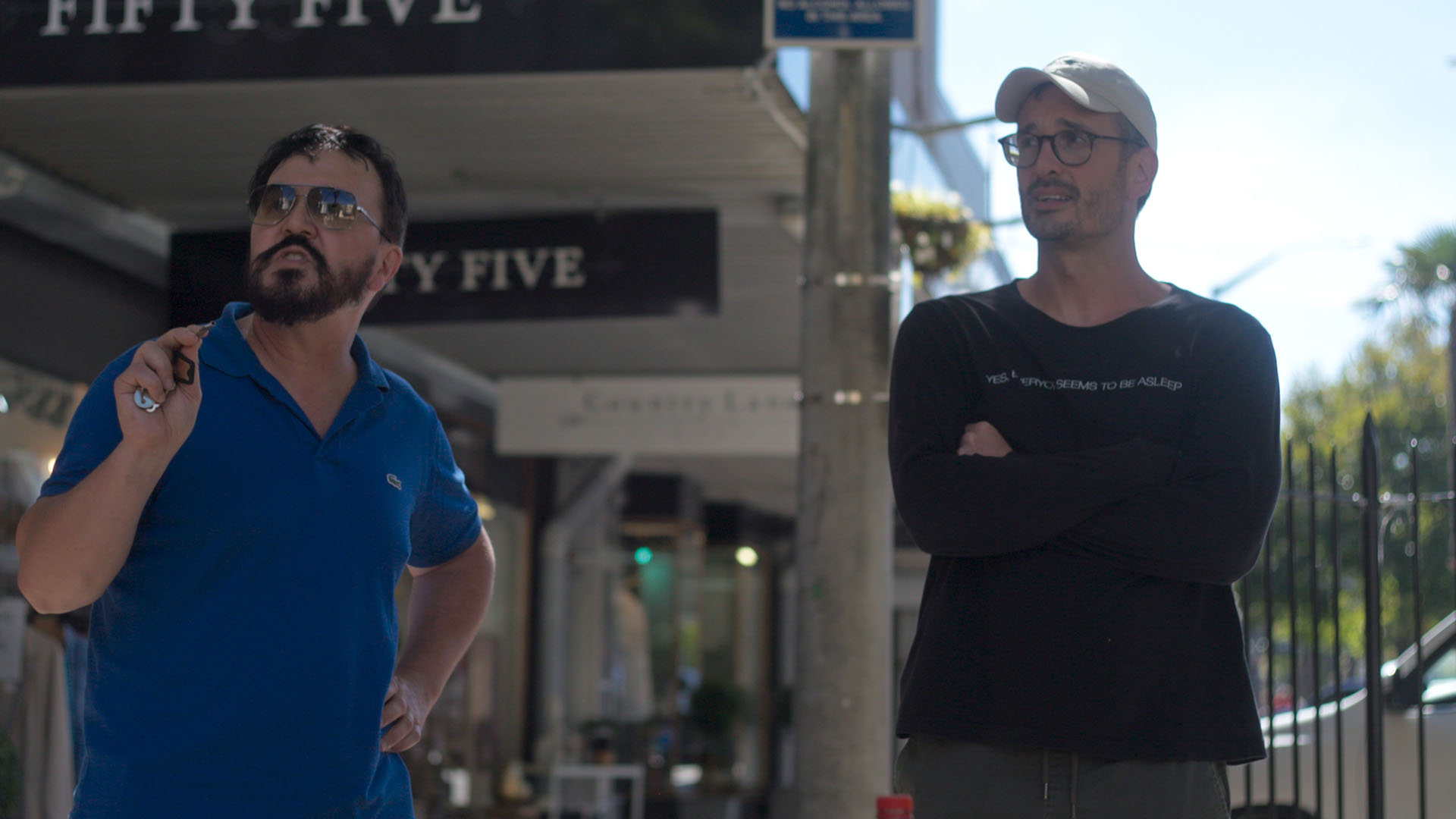
While Mister Organ was in its final stages of post-production earlier this year, Farrier was also reporting on disturbing stories emerging from Arise Church via his Webworm newsletter. Applying pressure to the megachurch’s abuses of power, Farrier wrote with detail and fervor—as well as what felt like an increasing and sometimes worrying anger.
The revelations he was sharing clearly pushed his bully button, and this was also a story that may have hit close to home, in light of Farrier’s own Christian upbringing and the heartbreaking accounts of Arise’s homophobia he was hearing (alongside the many, many other harrowing revelations). And, given some of the similarities in subject matter, I wondered if his taxing experience with Mister Organ had also fed into that fury.
“It’s completely fair,” agrees Farrier. “I’m angrier than I have been, ever. I feel frustrated that people can manipulate other people to their own ends and get away with it. And, you know, that’s something that this film is all about. It’s all reflected—they’re all as bad as each other, these people, you know?”
“I mean, with Arise Church, [pastor and founder] John Cameron, from that reporting, he’s resigned and he’s gone. He’s going to Australia, but he’ll just pop up in another church and do the same shit again. He’s incapable of doing anything else. Yeah, I think the narcissism of these people gets under my skin. And there’s certainly an anger that fuels the work, which is a good motivator. I think anger can be a good thing. But going from this film straight into the Arise stuff, it was probably a similar emotion.”
Soon Mister Organ will be releasing in New Zealand cinemas, and Farrier is coming home for Q&A screenings moderated by the likes of John Campbell, Mad Chapman and Toby Manhire. Webworm will keep making its way into inboxes and manifest in real life at its first live event Webworm, Arise! to explore the problems of megachurch culture (sorry, though—it’s sold out). There will be more episodes of Farrier’s podcasts Flightless Bird and Armchaired and Dangerous on US actor-comedian Dax Shepard’s network Armchair Expert too, but Farrier also hopes he can escape Mister Organ.
“I want it all to be over with,” he tells me. But before that can happen, it’s important to Farrier that people see the documentary so that they can be warned, not just about this one specific person, but warned about others like them: “Because there are lots of people like this everywhere, usually men—always men”.
And then?
“And then I never want to think about it again. Ever, ever, ever, ever.”
This interview has been edited for length and clarity.




